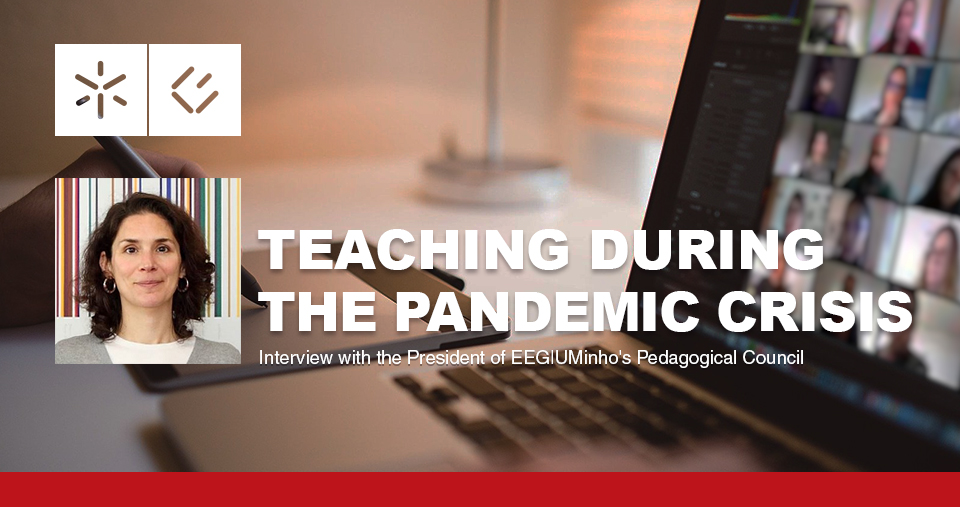Friday, 5/22/2020

We
talked to Ana Carvalho, President of EEG|UMinho's Pedagogical Council, who
shared with GCI-EEG the way in which the School reacted to the suspension of
academic activities on campus and how it adapted to distance learning. "By
the second week, most courses had already converted to online".
How did EEG react to the closing of the campus
and the suspension of face-to-face academic activities as a result of the
pandemic?
The news came as a shock, naturally. We spent
the first week meeting daily to figure out what was going on and what we needed
to do so that students weren't left stuck at home with nothing to do.
Some
professors started experimenting with online classes straight away. By the second week, most courses had
already converted to online, along the regular class timetables. In most cases,
classes stopped for only one week. On the third week after the campus closed,
the Pedagogical Council announced a revised calendar for academic activities
and the date for the end of classes was postponed for only one week.
Both faculty and students took to the online format
exceptionally well and adapted very quickly.
How were classes adapted to the online format?
Blackboard, which is our e-learning platform, was
the means used by most professors to ensure contact with students and to keep
classes going remotely, through the Blackboard Collaborate Ultra tool, that
allows synchronous sessions with the students enrolled in each course. Zoom was
also used in some courses.
Some professors opted to make recordings of
more theoretical topics or the resolution of exercises, leaving class
discussions and the clearing of doubts to the synchronous sessions. Others
still reinforced the use of alternative resources, more adjusted to the online
format.
We also had to make some adjustments to the
assessment regimes previously defined. But I think we were able to transpose to
the online context the main features of our pedagogical and assessment
activities. For example, in my own case, all the courses I taught this semester
called for the presentation of group projects. And they went on just as
planned. Students practised their presentations in the group's virtual room
using Blackboard Collaborate Ultra, and, as scheduled, made their presentations
in class in splendidly.
How were faculty supported in this transition?
This was a great challenge to members of
faculty. But they revealed outstanding dedication and adaptation capacity.
Right in the first week we organised an
"online class" for all professors, using Blackboard Collaborate Ultra
precisely to explore how they could use this tool in their online classes.
And later, when it was decided assessment would
also be carried out online, we made a similar session about online testing
The Rectory, through GAE (the Teaching Support
Office) and Centro-IDEA, also promoted from very early on a series of training
sessions on online tools, in the first case, and about the pedagogical aspects
of distance learning and assessment, in the second case. Centro-IDEA started
hosting weekly sessions for the sharing of experiences among faculty and
students across the whole University, in which many EEG professors have been
participating. These sessions have promoted a very fruitful interaction, not
only among EEG professors, but also with faculty from other Schools, and have occasioned
very interesting learning and collaboration among the different areas. We have
gathered from this a set of recommendations of best practice, both for distance
teaching and distant assessment, that we have been sharing with all EEG
professors.
And what about the students, how have they
adapted to distance learning?
Students have also adapted very well, in
general.
Having to study and attend classes in the same
space that is shared with the rest of the family or with house-mates is not
always easy.
But we kept contact with students to follow
their adaptation and identify potential problems. The programme Directors, the
student representatives and all professors in general guaranteed that regular
and ongoing contact.
We identified some cases of students with
difficulties with technological equipment and internet access, that were
referred to the support programme the University set up for that purpose.
Some specific cases also came to my attention
of students with professions that have been on the frontline of combatting COVID-19,
like nurses and security forces. In those cases, naturally, there was special
care to accommodate the particular needs of those students.
But, in general, the feedback I got from many
professors was that online class attendance was sometimes higher than was usual
in face-to-face classes. And I received from several students the message that
they were actually able to dedicate themselves more to studying during this
phase than when they had face-to-face classes.
So, although this is clearly not our favourite
regime, and we are longing to go back to the close and personal contact with
students that is a hallmark of EEG, I think we can say we have successfully overcome
this challenge.
Gabinete de Comunicação
Escola de Economia e Gestão
Universidade do Minho
Phone: 253 604541
e-mail: gci@eeg.uminho.pt

